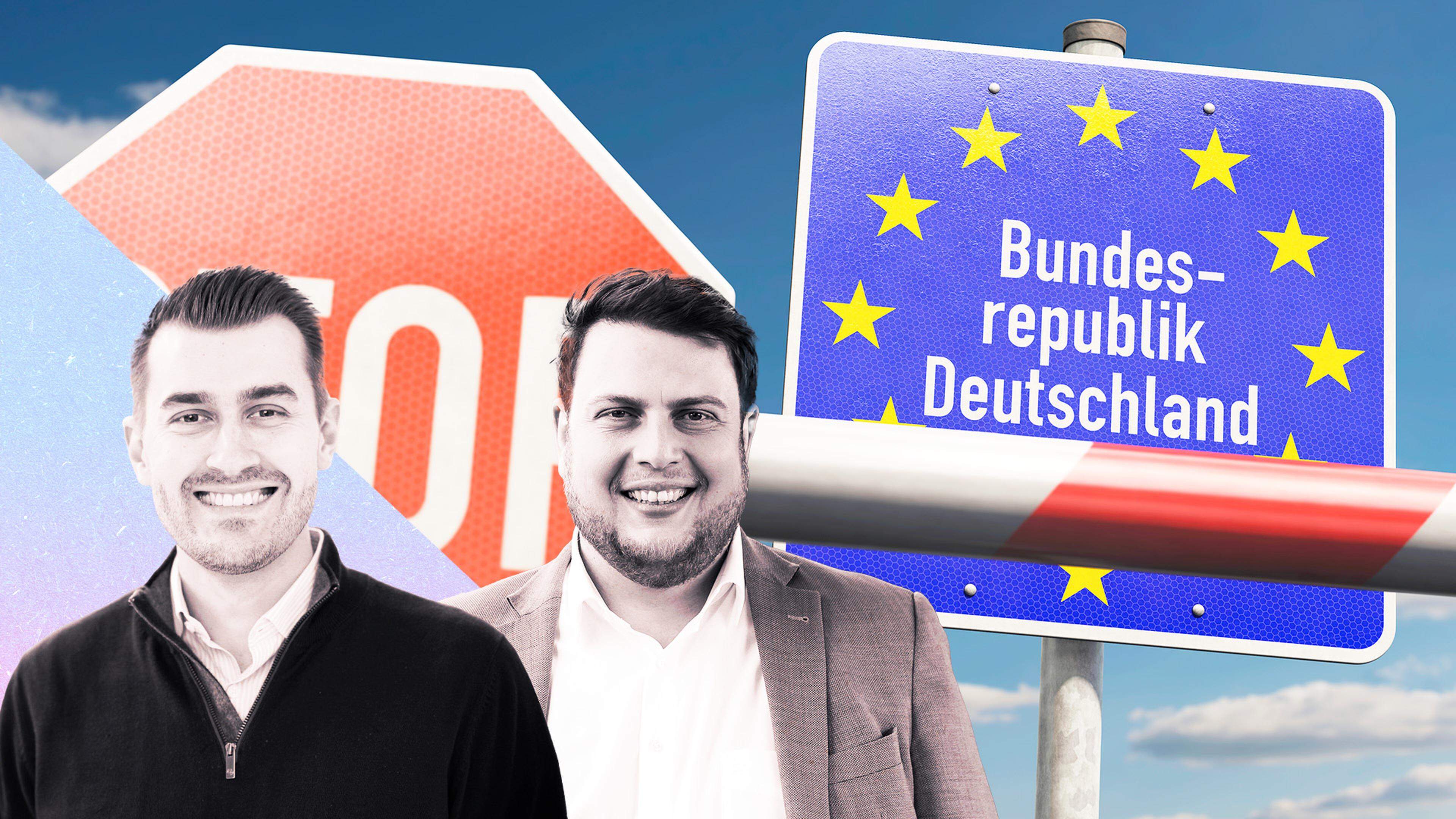European cooperation does not need a symbol policy, but an update

Schengen has been a symbol of European freedom and freedom of movement for 40 years. The right of citizens to move, live and work freely within Europe is one of the greatest achievements in European integration. We know our home, our Europe, no different.
Because we grew up in the feeling of boundless freedom. Julian Joswig in Rhineland-Palatinate, not far from Luxembourg. Meris Šehović in Luxembourg – his family fled in the early 1990s before the war in Yugoslavia. For us, a Europe means everyday life without a trees, it means security and opportunities.
Meris Šehović is a member of Déi Gréng in the Luxembourg Chamber of Deputy and the European policy spokesman for his parliamentary group.
Julian Joswig is a member of the German Bundestag for Bündnis 90/The Greens from Rhineland-Palatinate and chairman of his parliamentary group in the European Committee.
Guest contributions reflect the respective opinion of their authors, not those of the editorial team. They are not part of regular reporting and theme planning of the « Luxemburger Word ».
Organizations require legal proceedings against Germany’s border controls
That is why June 14, 1985 is a special date. 40 years ago, history was written on the passenger ship « Princesse Marie-Astrid » on the Obermosel in the border triangle near Schengen. The Schengen Convention signed there was a promise: for open limits, for mutual trust – and for a Europe that connects people instead of separating them.
Exactly 40 years after signing the Schengen Agreement, it looks bad about unlimited freedom.
The agreement laid the foundation for the reduction of border controls between the member states and enabled citizens to travel freely without passing checks in large parts of Europe. Without free movement and open internal borders, a common European identity and a successfully functioning internal market are inconceivable.
40 years of Schengen Agreement: A dinner with clear messages for Europe
The name Schengen stands for a Europe of transnational mobility and cohesion. Today, tens of thousands of people commute to work for work, school, to school, to work every day. For them, Schengen means freedom, quality of life and so far normal. But this promise is under pressure today.
It is not checked at our limits – they are blocked
Exactly 40 years after signing the Schengen Agreement, it looks bad about unlimited freedom. Symbolical police controls and border blockades burden the coexistence in the border regions, rejections in violation of European law question cross -border cooperation.
The new German federal government has intensified inpatient border controls since May and has relocated a large number of federal police forces to the internal borders. But instead of additional security, they bring traffic jam. Instead of order, they create uncertainty.
On the occasion of the 40th anniversary of the Schengen Agreement, the EU Interior Minister in Schengen met on Thursday. Photo: Chris Karaba
Inland boundary controls cause considerable costs and hinder free goods traffic, a central element of the European inland market. Commuters lose time, freight forwarding money1Families their patience. Everyone now knows a story of long waiting, delay and uncertainty from their environment.
Even more serious: Under the new federal government, asylum and protection seekers at the German limits, access to a rule of law is denied and rejections were even ordered to issue the Interior Ministry. A clear violation of European law – the Berlin Administrative Court also made this clear in its judgment of June 2, 2025. A flop for the new federal government, a success for European and asylum law. Everyone has the right to be heard – the German Interior Minister is not above this principle.
Why the fundamental right « free passenger transport » is in acute danger
Free movement is a fundamental right. And it is the heart of the European idea.
And the practical benefit of the prescribed border measures? It is more than questionable: just 160 asylum seekers were rejected in four weeks. This is not a breakthrough, but an expensive, symbolical theater. In the meantime, the German police officers are missing in other places in the country, for example at train stations and airports – effective security policy looks different.
In addition: Anyone who is rejected at the German-Luxemburg border is currently simply sent back-without any agreement with Luxembourg’s authorities.
After 40 years, Schengen needs an update
What we need in Europe now is not more nationalism and foreclosure, but more trust and cooperation. The common European asylum system works through cooperation, not due to solo courses and rejections on the unclear legal basis.
That is why we as a member of the German Bundestag and the Luxembourg Chamber of Deputies are calling for:
-
A critical review of all inpatient border controls within the Schengen area and an enforcing end of the measures in the German-Luxemburg border region.
-
A stronger and more capable internal market that makes cross -border work easier and consistently reduces administrative hurdles for mobile employees.
-
More cross-border police cooperation, strategic cooperation and joint police centers between neighboring countries instead of national sole joints without joint agreements.
-
Coordinated and constitutional asylum procedures that protect human rights instead of symbolical sham solutions and rejections contrary to European law.
-
And: More investments in cross -border passenger transport, more opportunities for shared exchange and youth participation than measures against isolation and nationalism.
Luxembourg must complain against border controls before the ECJ
Free movement is the heart of Europe
Schengen was never a technical decision – but political courage. And this courage is asked again today. Because reactionary, nationalist forces are calling for new walls, questioning asylum law and attacking European cohesion. We are not allowed to leave the field to you. We say clearly: freedom of movement is a fundamental right. And it is the heart of the European idea. Together we have to make sure that it continues.
Footnote:
1 Waiting time per hour costs additional costs of around 100 euros per hour (TLN 2024).







